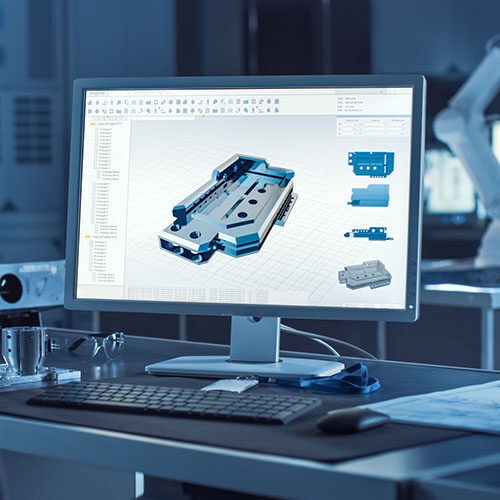
The manufacturing industry seems destined to grow forever. It’s, therefore, no surprise that manufacturers require incredibly efficient organization of all their daily business processes. Solo coordinators often fail at the task of keeping up, and whole committees rarely do any better. Enter enterprise resource planning (ERP). If you’re looking for a way to up any aspect of your company’s game, there’s a good chance this versatile, understandably popular software is your ticket.
According to Statistics Canada, manufacturing inventories rose 0.4% to a record high $81.5 billion inMay, and inventories were up in 9 of 21 industries, representing 58% of total manufacturing inventories. Meanwhile, unfilled orders were up 3.5% to $92.8 billion in May—the fourth consecutive monthly gain. To keep unfilled orders down and inventory at a healthy turnover rate, more and more manufacturing companies are using ERP and taking advantage of its many benefits. It’s no wonder that the global ERP software market is expected to reach $41.69 billion by 2020.
Not convinced of the vital role of ERP in manufacturing industries? Consider the following 8 advantages of an ERP system for your company:
1. Next-level automation
Perhaps the most significant benefit that a solution involving manufacturing ERP functions offers is automation. Process automation speeds up overall production and drastically reduces errors. When your company transitions from manual manufacturing to automated, you rely less on humans, and the process becomes more straight forward and accurate, which in turn improves customer experience and boosts your profits.
2. Streamlined operations
As manufacturers grow, operations grow more complex. Custom manufacturing ERP software provides real-time information you can use. Imagine the level of productivity you could achieve by letting ERP guide users through complex processes. Eliminating data re-entry, and improving production, order completion, and delivery are just a few of the perks. Modern ERP systems also offer integration capabilities, making it easy to centralize information so all employees who need access to data can get it from one place and update each other as needed.
3. Cost reduction
Thanks to the automated, streamlined processes they make possible, manufacturing ERP features for SMEs help manufacturers reduce operational costs. Additionally,ERP implementation in the manufacturing industry is known to increase worker productivity, in turn minimizing labor expenses. The ability to efficiently track inventory and integrate it with production planning eliminates excess inventory and storage costs. Also, lower error rates curtail your losses even more.
4. Product quality assurance
Knowledge is power, which means observing fault in a product facilitates the production of higher quality items. An effective ERP solution can be incorporated with a quality control module to helps manufacturers standardize their products. Manufacturing ERP modules also help to detect those areas where quality issues are occurring in the first place and identify appropriate measures for putting an end to them.Better products mean higher sales and genuine consumer loyalty.
5. Better flexibility
Manufacturing ERP functions offer you the opportunity to seize control of your inventory, precisely plan out and streamline production schedules, and coordinate distribution channels. Thank your ERP-conducted system for consistently on-time product delivery—a critical performance metric for any manufacturer. Think of it as yoga for your company: enhanced flexibility goes a long way.
6. Stronger communication
An ERP system is all about effective communication. Manufacturing ERP features for SMEs allow firms to share important production-related data with internal employees as well as external stakeholders like suppliers, distributors, or even end-customers. This improved ability to communicate and collaborate allows department heads to maintain, sustain, and strengthen key business relationships.
7. Decision-making power
A comprehensive ERP solution provides thorough visibility (and therefore insights) into every department, rendering it easy for your company to make quick, informed decisions on the spot. Access to key performance metrics such as overall sales, or sales margin, helps you optimize day-to-day operations and stay close to your goals whenever called for.
8. Increased customer satisfaction
When you put the pieces all together (which is precisely what manufacturing ERP functions do), it becomes clear very fast that the combination of accurate production planning, increased inventory control, streamlined processes, and coordination of distribution has a significant positive impact on delivery times. Punctual delivery is integral to maintaining your customers’ happiness, which in turn makes them want to leave glowing reviews.
So seize the day, and become the game-changer! Take advantage of the tools at your disposal with Genius ERP.
Get your eBook Scared to implement a new ERP?
"*" indicates required fields



